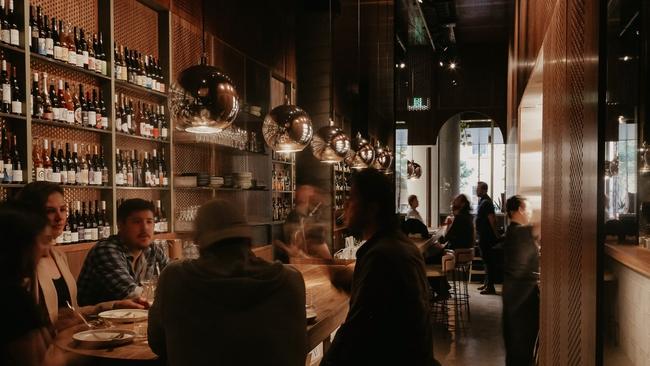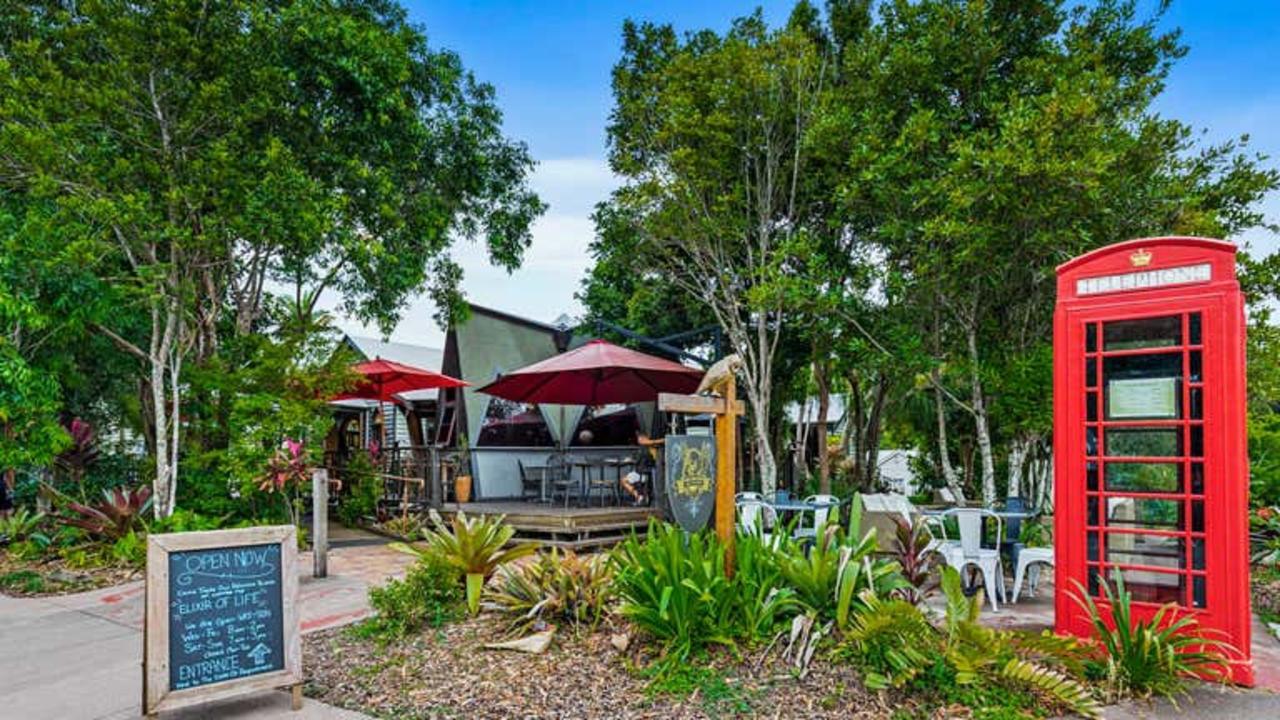Wine bars keep on booming, but for how much longer?
In just six years Queensland has gone from zero wine bars to as many as 100. But with two high-profile closures in the past two weeks, some are wondering if the boom has popped like a champagne cork. We talk to the experts about what lies ahead.

North
Don't miss out on the headlines from North. Followed categories will be added to My News.
Only six years ago there were, precisely, zero wine bars in Brisbane.
These days, there seems like one on every corner in the Valley, South Brisbane and Woolloongabba.
While the definition of what is truly a wine bar seems a bit loose, with many just restaurants which have tacked on a bar, estimates put the number in Brisbane alone at the 40-plus mark.
They have spread outside the CBD as well, including Adelita in Wynnum, The Old Seven in Camp Hill, Clapham Junction “speak-easy’’ in Banyo, The Walrus Club “speak-easy’’ in a basement area of the Regatta Hotel in Toowong and a bunch of wine bar newcomers in Ashgrove and Paddington.
The Gold Coast and Sunshine Coast now boast about 20 each and even Wide Bay had a wine bar, PKO Art & Wine in Gympie, until the February 2022 floods wiped it out.

But the shock closure of Butler Wine Bar in South Brisbane a fortnight ago after just nine months, followed a week later by Maroochydore’s Peak Wine Bar, has some questioning if there is now too much competition.
One prominent Brisbane nightclub owner said it was a tough time for everyone in hospitality, including wine bars, with a perfect storm of inflation, labour shortages, huge electricity price hikes and the end of Covid stimulus measures.
He said the impact of interest rate rises on discretionary spending was also starting to bite for a market niche where some venues charge more than $100 for a glass of wine and cheeseboard for two people. And that’s before paying for an Uber home.
But industry pioneer Paul McGivern, owner of Brisbane’s longest running wine bar La Lune Wine Co in South Brisbane, believed there was still plenty of steam left in the boom.
“That’s because unlike a restaurant experience, where customers expect to sit down for two or three hours, with wine bars you can stay for five minutes or several hours,’’ he said.
“Often people will have just one glass and then move on to the next one.
“Wine bars are more like coffee shops than restaurants in that people use them to catch up with friends.
“There’s also an educational element, including among young people these days, who have a genuine passion for wine and want to learn more.’’
Mr McGivern said that with the Olympics and the new Casino coming up, he was not calling time yet on the expansion of venues.

But he said that, as with all hospitality businesses, the fundamentals had to be right.
“The owner has to be there. It has to be hands on deck talking to every customer as they come in,’’ he said.
“Each suburb will also have a different market and the offering has to match that.
“The demographics in New Farm and Teneriffe are different to Albion and to West End and Paddington — there’s no one size fits all.’’
Queensland Hotels Association CEO Bernie Hogan said the boom began with changes to liquor laws to allow small bar licences.
“Before then you had to have a pub licence and that didn’t suit everyone, it was more about bigger venues,’’ he said.
“It took people a while to figure out the business model. For some, their business model will not fit their clientele (forcing them to close).’’
Mr Hogan said cost pressures were an increasing problem and had to be passed on to customers at a time when the cost of living for customers was also going up.

Justin North, from hip new Noosaville wine bar Apero, said when he opened Noosa had a well established dining-out scene but wine bars were still in their infancy.
“The industry still has a way to go because unlike a restaurant people can stop in for a short while and move on to another venue — you might go to two or three in an evening,’’ he said.
“The challenges are no harder or easier in a small bar.
“You’ve got fewer staff positions to fill, but they have to be multiskilled.
“If you pay well and treat people well you won’t have trouble hiring.’’
Jared Thibault, co-owner of South City Wine in Woolloongabba, said the popularity of wine bars in southern states was helping push the trend, as was the increasing number of skilled hospitality operators and staff relocating to Queensland.
“I think we’re getting a lot more talent in Brisbane, which helps achieve these cool concepts,” Mr Thibault said.





